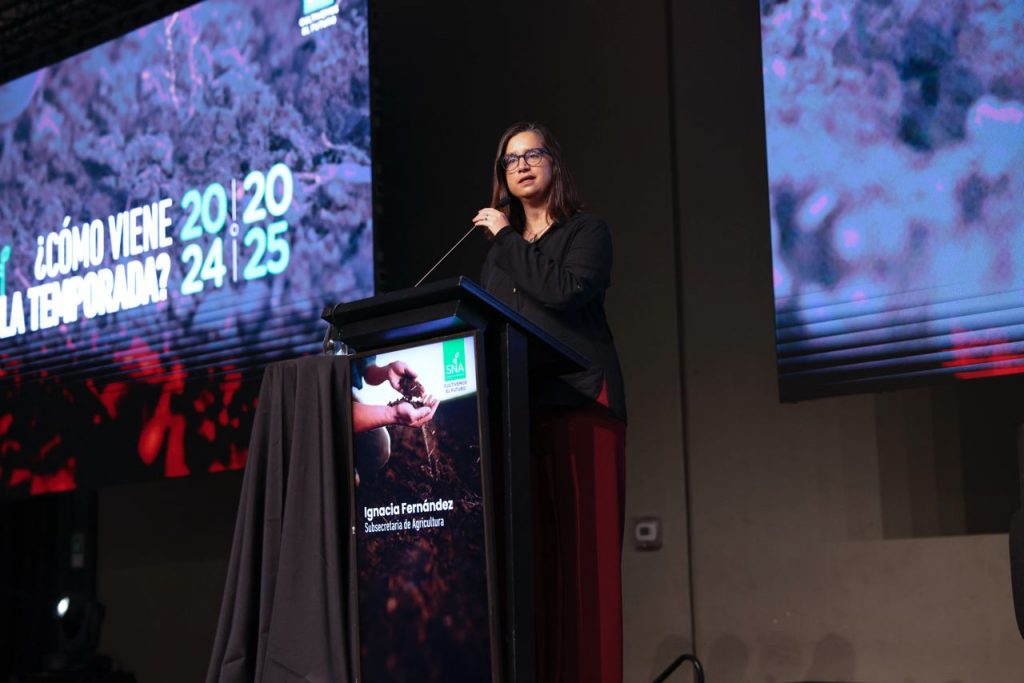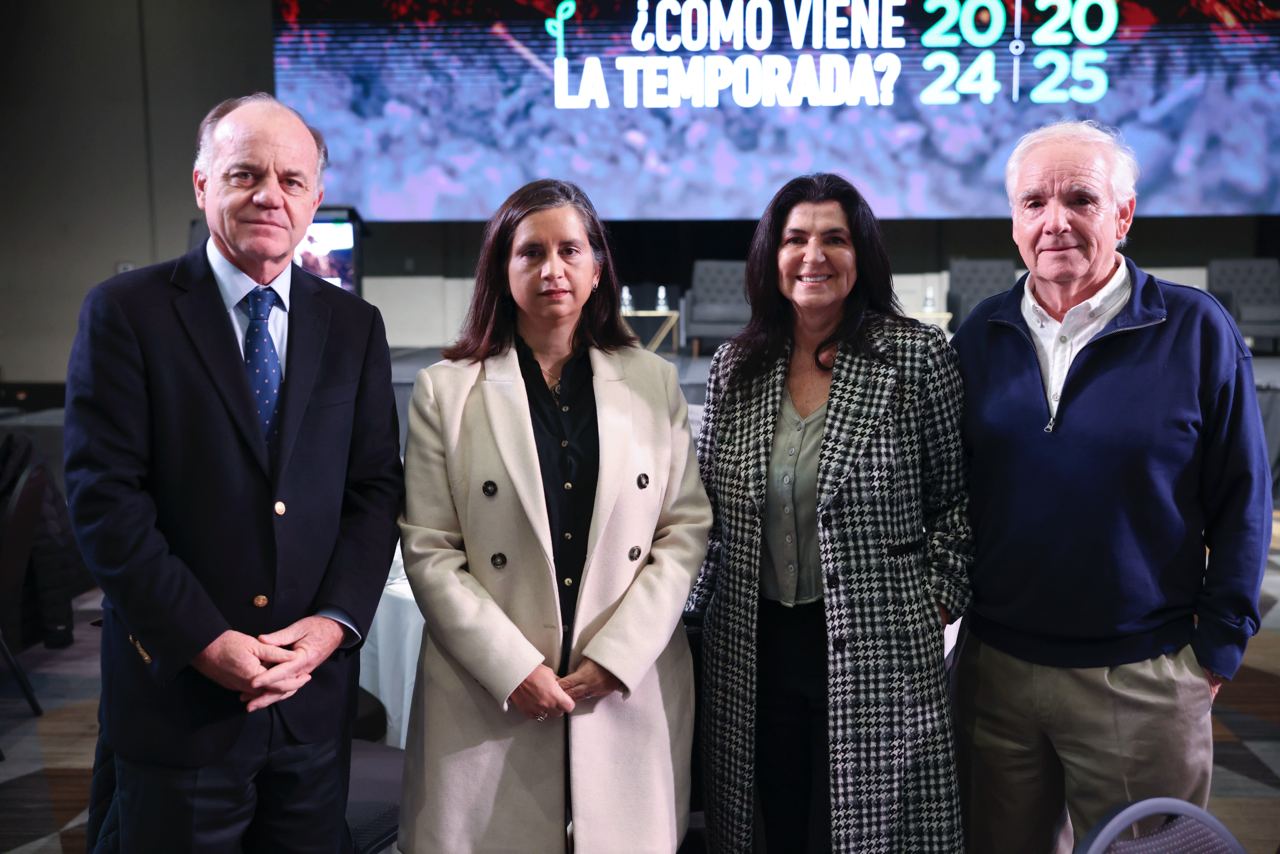Insights into the growth projections, challenges, and advancements discussed at the annual agricultural seminar.
Santiago, June 13, 2024 – The Subsecretary of Agriculture, Ignacia Fernández, delivered an optimistic overview during the “How is the 2024-2025 Season Coming?” seminar hosted by the Sociedad Nacional de Agricultura (SNA) this morning at the Metropolitan Santiago Center. The event brought together governmental authorities, rural confederations, wholesale market representatives, and SNA partners to assess challenges and opportunities facing the agricultural sector in the upcoming season.
Fernández highlighted significant economic improvements, citing a decrease in inflation to 4%, an increase in foreign investment, and a projected 2.7% growth for the year. She also addressed the current provisional scenario for national agriculture, marked by years of pressure from high fertilizer and energy costs.
The subsecretary emphasized achievements under the Sustainable Agro-export Competitiveness Agenda implemented during the second half of 2023 by President Gabriel Boric’s administration. These efforts aimed to diversify Chilean agro-exportations, which included opening a new agricultural attaché in Vietnam and initiating exports of fresh peaches and apricots to China. Additionally, she underscored initiatives enhancing food security, such as the new Irrigation Law and strengthened phytosanitary measures.
“The government’s challenges in agriculture revolve around three key pillars: enhancing productivity and competitiveness while safeguarding sustainability amidst climate change adjustments; balancing agro-export production with domestic market needs and ensuring national consumption,” remarked Subsecretary Fernández. She emphasized the integral, innovative approach required for rural development, advocating for robust public-private partnerships to shape a sustainable future.
Antonio Walker, President of the Sociedad Nacional de Agricultura, projected a promising season ahead, particularly for fresh fruit due to favorable production conditions and exchange rates. He acknowledged sectoral challenges and proposed structural solutions, affirming optimism in overcoming current hurdles through effective policy and collaborative efforts.
The seminar also addressed the wheat producers’ crisis and strategies underway to mitigate challenges, alongside initiatives to promote Chilean wine internationally. Subsecretary Fernández highlighted ongoing efforts to address the water crisis affecting the Limarí province in Coquimbo, including immediate measures like animal feed distribution and the Silvoagricultural Impact Assessment.
Concluding her presentation, Fernández emphasized the forestry sector’s economic significance and advocated for competitive and sustainable institutional updates, including the proposed public CONAF: SERNAFOR legislation. She also highlighted the recent approval of the Sustainable Soil Management Incentive System (SIGESS) by the Chamber of Deputies, designed to help farmers adapt to climate change effects and improve soil quality for food production.





